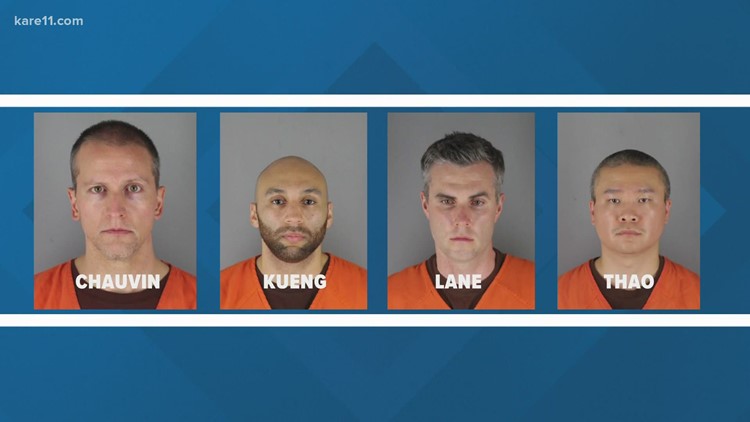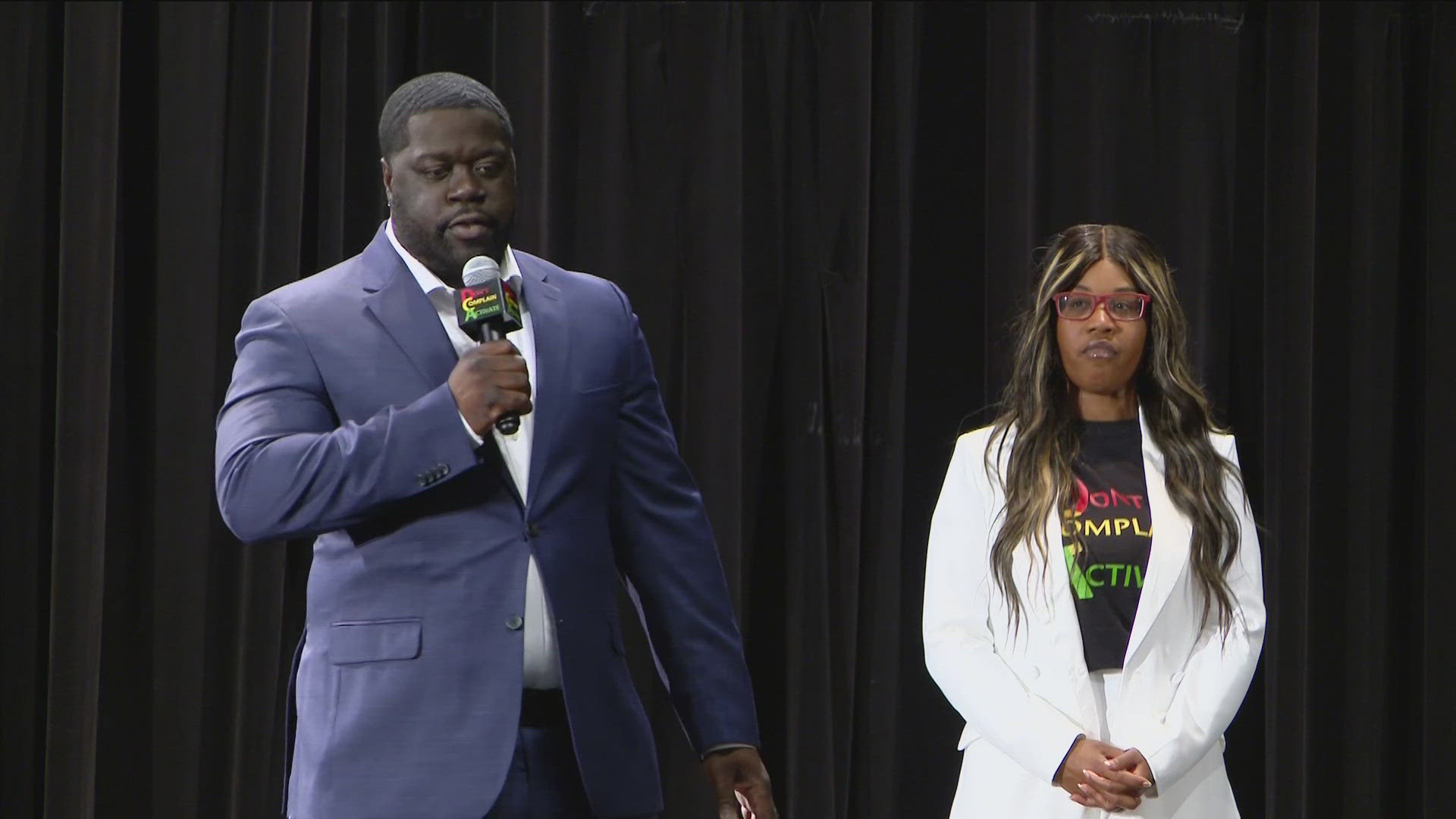ST PAUL, Minn. — Prosecutors are asking the court to consider longer potential sentences against four former Minneapolis police officers if they're convicted in the death of George Floyd.
Minnesota Attorney General Keith Ellison, who is leading the prosecution, filed motions seeking an "upward departure" in the sentencing guidelines for the cases against each of the four former officers on Friday.
Former officer Derek Chauvin is charged with second-degree and third-degree murder and second-degree manslaughter In Floyd's death. J. Alexander Kueng, Tou Thao and Thomas Lane are each charged with aiding and abetting second-degree murder and aiding and abetting second-degree manslaughter.
In the motions, Ellison listed several reasons that an upward departure would be reasonable in the case against Chavuin. The motion said Floyd was "particularly vulnerable" because he was already handcuffed and placed chest down on the pavement. Prosecutors also said Floyd was "treated with particular cruelty" as Chauvin continued to restrain Floyd with a knee on his neck, even as Floyd pleaded that he couldn't breathe. The motion also argues that Chauvin abused his position of authority, committed the act with three others, and did so in the presence of multiple children.
Similar arguments for upward departure were listed in the filings in the other former officers' cases.
The state has previously filed motions asking a judge to combine the four cases into a single trial.
Earlier this week, the defense attorney for J. Alexander Kueng filed a series of motions, with one requesting a change of venue, and another requesting that George Floyd's previous arrests be allowed as evidence in the trial. Kueng's attorney also filed a motion seeking full dismissal of the case, saying the state failed to establish probable cause.



